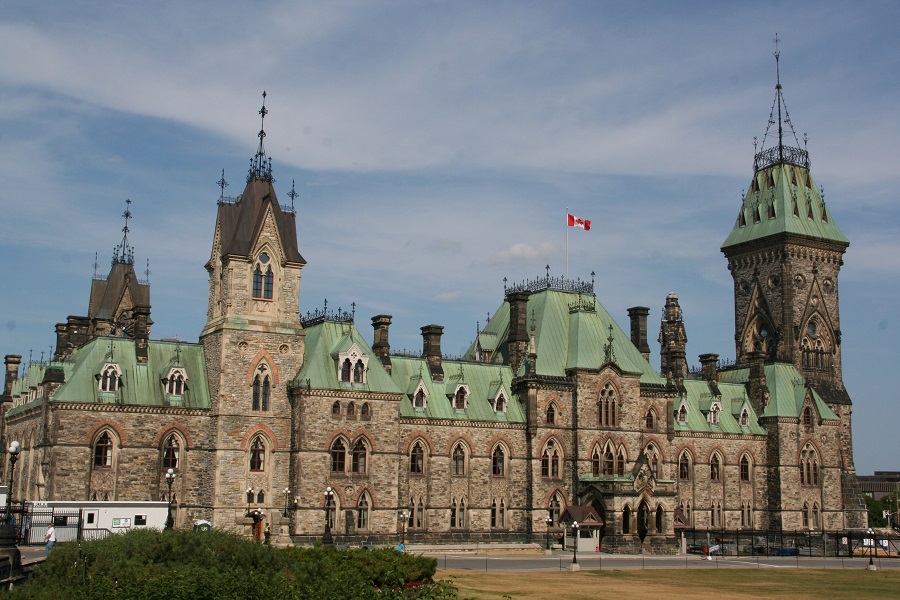Newly Appointed Cabinet Minister to Oversee Arrival of One Million New Immigrants
Canada’s Federal government has revealed Marco Mendicino as its new Minister of Immigration, Refugees, and Citizenship, and mandated him the responsibility of managing and overseeing the arrival of over one million new permanent residents and creating a new Municipal Nominee Program, along with other important tasks.
Mendicino was appointed as one of the newest members of Prime Minister Justin Trudeau’s cabinet last month following his recent re-election as a Liberal member of parliament representing the Toronto riding of Eglinton–Lawrence.
Prior to becoming an MP, Mendicino worked as a lawyer and federal prosecutor for many years, with a focus on terrorism and organized crime.
According to CIC News, the Immigration Minister’s new responsibilities recently set out in his official mandate letter are not surprising, and reflect existing policies enacted by the Liberal party along with promises the party made during their recent election campaign.
According to Mendicino’s mandate, his responsibilities include:
- Ensure the effective implementation of Canada’s increased annual Immigration Levels Plan for 2020-2022, attracting more than a million new permanent residents to Canada over that time.
- Work with the provinces and territories to ensure a renewed focus on the delivery of high-quality settlement services to ensure the successful settlement and integration of new Canadians. This will require a rigorous approach to data in order to accurately measure outcomes.
- Introduce a Municipal Nominee Program that will allow local communities, chambers of commerce and local labour councils to directly sponsor permanent immigrants. At least 5,000 new spaces will be dedicated to this program.
- Take the steps required to make the Atlantic Immigration Pilot permanent. At least 5,000 new spaces will be dedicated to this program.
- Bring forward a plan to eliminate fees for citizenship for those who have fulfilled the requirements needed to obtain it.
- Support the Minister of Public Safety and Emergency Preparedness on irregular migration, including the new Border Enforcement Strategy and continued work with the United States to modernize the Safe Third Country Agreement.
- With the support of the Minister for Women and Gender Equality and Rural Economic Development and the Minister of Diversity and Inclusion and Youth, work to implement pilot programming to encourage more newcomers to settle in rural Canada.
While these tasks are great steps forward for immigration in Canada, there were some omissions that may come as a surprise.
For example, Mendicino’s mandate made no mention of the Parents and Grandparents Program that presented certain challenges over that past 10 years and was expected to be made a priority by the Liberal government.
There was also no mention of launching any new provincial pilot programs to welcome foreign entrepreneurs in accordance with the federal government’s desire to promote innovation and entrepreneurship.
However, regardless of these omissions, it will be interesting to see how Mendicino’s mandate plays out over the next few years as improvements are being made to Canada’s immigration system.
Share this article
Arghavan Gerami
Arghavan Gerami is the Founder and Senior Counsel at Gerami Law Professional Corporation ('PC'), a full-service immigration law firm in Ottawa, Ontario. Since 2011, Ms. Gerami has focused her practice on immigration and refugee litigation. Prior to that, Ms. Gerami worked at the Ministry of Attorney General and the Department of Justice and had the privilege of serving the Honourable Mr. Justice M. Evans at the Federal Court of Appeal on immigration and administrative law appeals. Ms. Gerami contributes to the Immigration Law Section of the Canadian Bar Association, the Canadian Association of Refugee Lawyers, and the United Nations High Commissioner for Refugees. Ms. Gerami has also published numerous journal articles and presented at various immigration and refugee law conferences and events across Canada.

